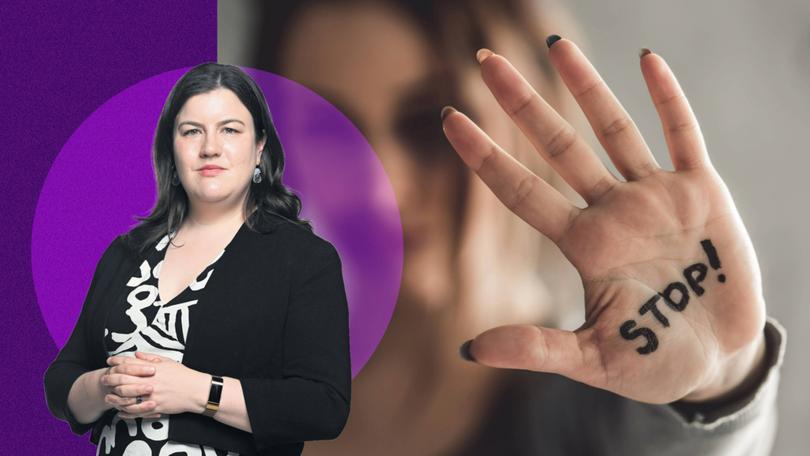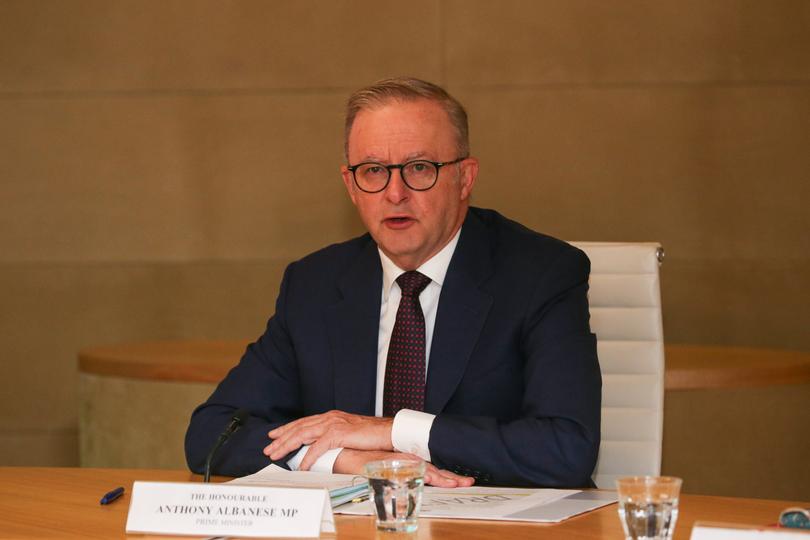KATINA CURTIS: All ages, locations and demographics are victim to the domestic violence scourge
KATINA CURTIS: All ages, all locations, and all demographics are affected by domestic violence and abusive relationships. Change will take everyone stepping up —and money.

“Hannah was 33-years-old when she was killed by her husband.”
That’s the eighth paragraph in the coroner’s report into the horrific deaths of Hannah Clarke and her three young children, who were burned beyond recognition in their car 10 weeks after she left the abusive relationship.
Some 154 pages later, the coroner declares: “Rowan Baxter was not mentally ill. He was a master of manipulation.”
Sign up to The Nightly's newsletters.
Get the first look at the digital newspaper, curated daily stories and breaking headlines delivered to your inbox.
By continuing you agree to our Terms and Privacy Policy.What lies in between is a clear-eyed but devastating account of a textbook case of coercive control, the escalating warning signs, the frustrations and limitations of working through the family legal system, and the missed opportunities for police or support services to address Baxter’s behaviour.
If dry coronial findings are not your thing, try Jane Caro’s novel The Mother, published around the same time as the March 2022 inquest into Clarke’s death.
Both unveil insidious answers to the question: how does this happen?
The murder in February 2020 of Clarke and her children Aaliyah, 6, Laianah, 4, and Trey, 3, shook the nation.
The mounting death toll of women killed at the hands of violent men — partners, ex-partners, family members — is again shaking the nation.
So far this year, 28 women have been allegedly killed.
It’s nearly double the death toll for the same time a year ago, according to the Counting Dead Women project.
The sheer fact we have a volunteer group who counts deaths of women should be chilling to everyone in this country.
Just as chilling is the wider scourge of violence, coercive control and financial abuse.
The most recent data — now three years old — shows 2.3 million Australian women had been emotionally abused by a partner, 1.7 million had been physically or sexually abused and 1.6 million financially abused.
All ages, all locations, all demographics are affected.
It is about power and control.
And if we want it to stop — which everyone says they do — it’s going to take everyone stepping up.
Those support numbers on the bottom of articles or flashed up on television screens or in people’s social media feeds are links to important services to help if you are in an abusive relationship.
But they are also there for if you want to change your own behaviour.
And they are there to offer advice if you are supporting someone who is in an abusive relationship.
It will usually be those closest to the people involved who see the warning signs first — not always, but often enough that speaking up could make a difference.
By contrast, less than half the men who go on to kill their partners are known to authorities before the murder.
Change is also going to take government attention and money. That’s why national cabinet met on Wednesday.

But, as with anything involving governments, things don’t move as swiftly or come with as much money as they really need to.
Hannah Clarke’s case prompted the Queensland government to promise laws criminalising coercive control.
Those laws passed Parliament — in March. Only three other governments have done similar, and WA is not one of them.
At the moment, the Government has a big focus on cracking down on scams like those text messages that seem to come in every other night demanding payment for toll roads I haven’t driven on.
This has been prompted in part by Australians losing a collective $481 million to scammers last year.
Financial abuse alone is estimated to cost victims $5.7b a year.
Barely a Budget cycle goes by without domestic violence services and women’s safety advocates calling for more money or more secure funding.
This year they’re saying there needs to be an extra $1b annually.
The same billion-dollar call was made last year and the year before — no inflation crisis here.
“There are billions of dollars that we’ve invested over two Budgets in trying to keep women safe, but women still aren’t safe in our community, in our society,” Treasurer Jim Chalmers said on Wednesday.
“And if there are ways that we can provide more investment or invest differently in these really important services to keep women safe, then obviously that’s something that we’re prepared to consider.”
The announcements out of national cabinet don’t get anywhere near touching the sides.
Yes, it might be expensive to do this now.
But if we do it properly, in 20 or 30 years from now it shouldn’t cost anything at all.
Support is available from 1800RESPECT (1800 737 732)
Men’s Domestic Violence Helpline in WA on 1800 000 599
Men’s Referral Service on 1300 766 491
Katina Curtis is Canberra Bureau Chief

